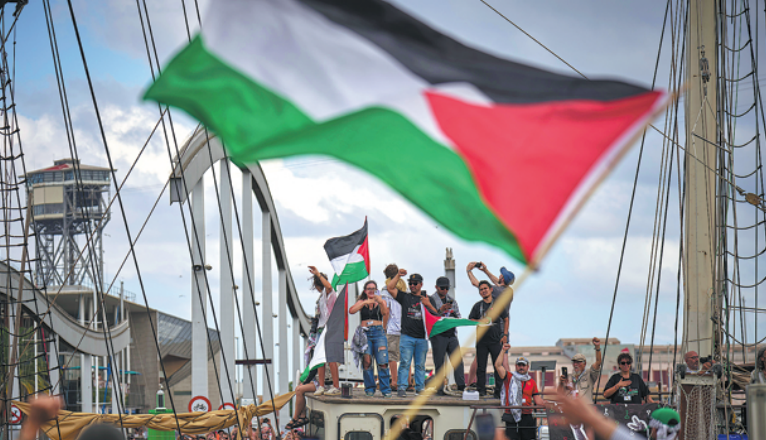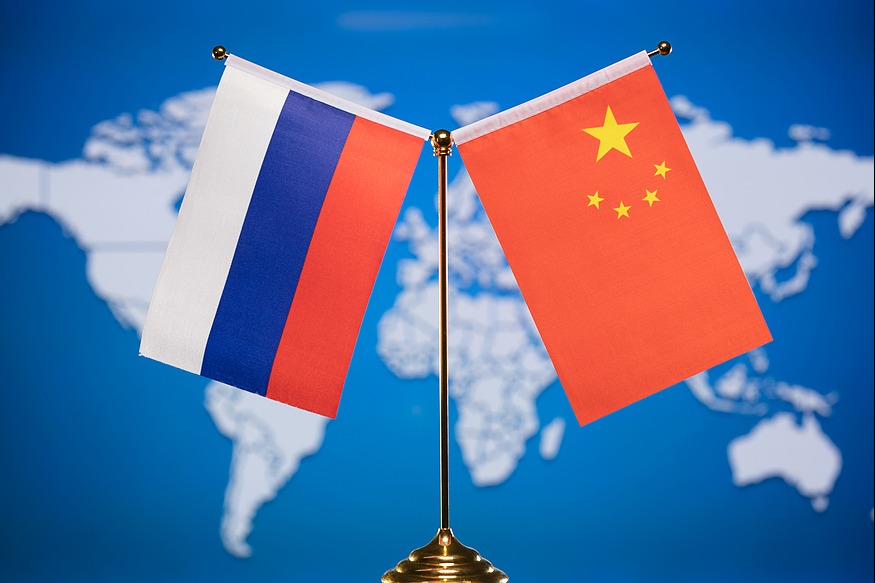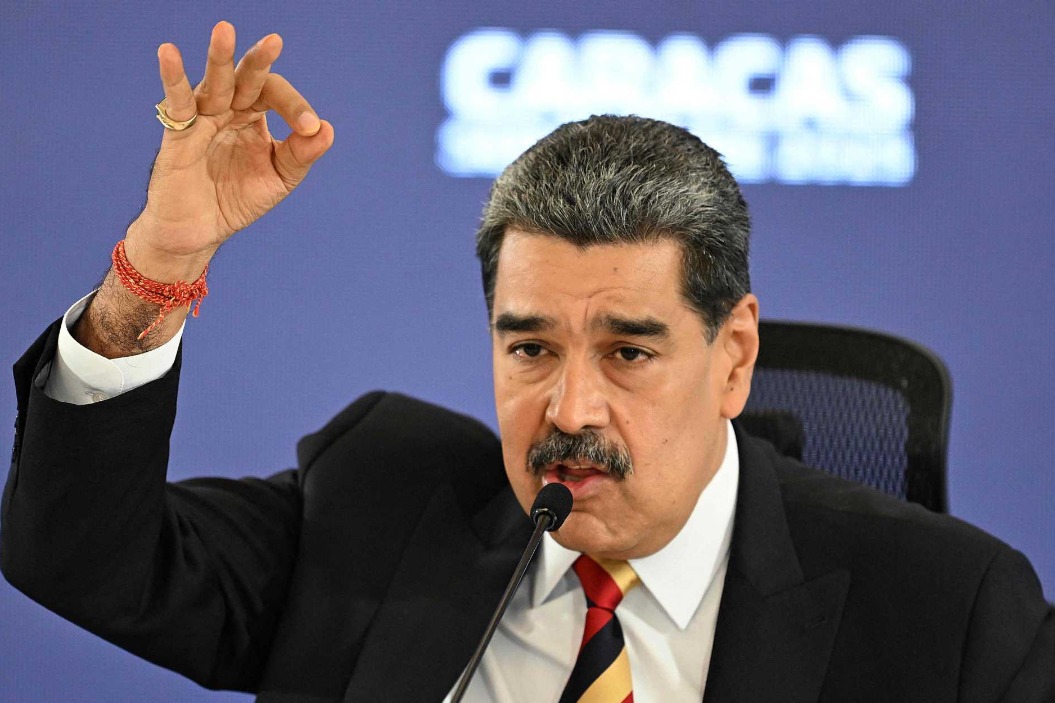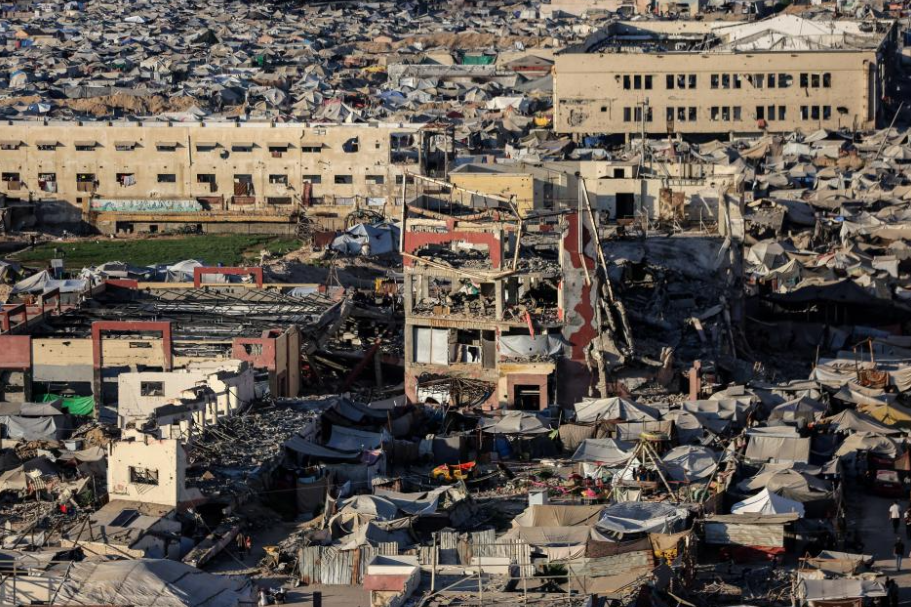Belgium to recognize Palestine at UN General Assembly


Belgium became the latest European country to recognize a Palestinian state at the upcoming United Nations conference later this month as the opposition to Israel's conduct in Gaza has gained further momentum.
Belgian Foreign Minister Maxime Prevot said on Tuesday that Palestine will be recognized by his country at the UN session, adding to international pressure on Israel after similar moves by Australia, Britain, Canada and France.
Prevot said his country would impose sanctions on Israel, which would include a ban on the import of products from illegal Israeli settlements in the occupied West Bank. And there would also be a review of public procurement policies with Israeli companies and the designation of Israeli ministers as persona non grata in Belgium.
Palestine's Ministry of Foreign Affairs and Expatriates welcomed the announcement by Belgium, posting on X that this "principled position is fully consistent with international law", UN resolutions, and "the protection of the two-state solution". The post added that Belgium's decision "represents vital support for achieving a just and lasting peace".
The ministry called on all nations that have not yet recognized the State of Palestine to do so urgently and to intensify practical efforts "to halt Israel's crimes of genocide, forced displacement, starvation, and annexation", while opening a genuine political horizon to resolve the conflict and end the Israeli occupation.
Meanwhile in Kuwait, the 165th Gulf Cooperation Council Ministerial meeting on Monday underscored the necessity of reaching an immediate and comprehensive agreement for a ceasefire in the Gaza Strip.
It called for the release of hostages and detainees, protecting the civilian population, and facilitating the urgent and uninterrupted delivery of humanitarian aid.
The GCC meeting also condemned Israel's "crime of genocide", ethnic cleansing, the destruction of civilian infrastructure, displacement, and the "deliberate siege policy" that has led to famine in Gaza.
The GCC countries comprise the United Arab Emirates, Saudi Arabia, Bahrain, Kuwait, Qatar, and Oman.
They demanded that the international community take immediate action to stop these crimes committed by the Israeli occupation government and take serious steps to prevent them and hold perpetrators accountable.
New deaths recorded
Gaza's health authority recorded 13 new deaths, including three children, "due to starvation and malnutrition over the past 24 hours", in the strip, bringing the total number of hunger-related deaths to 361, with 130 of them children.
Also at least 40 other Palestinians, including several aid seekers, have been killed in Israeli attacks across Gaza since dawn, according to Al Jazeera reporting from Deir al-Balah.
A leading group of experts from the International Association of Genocide Scholars, or IAGS, passed a resolution that said legal criteria have been met to establish that Israel is committing genocide in Gaza, including crimes against humanity and war crimes.
The Israeli Foreign Ministry has rejected the IAGS resolution as "disgraceful", saying it was "an embarrassment to the legal profession and to any academic standard".
Meanwhile, a global fleet of boats carrying humanitarian aid, finally departed from Barcelona in Spain for Gaza on Monday after bad weather forced them to turn around earlier.
The "Global Sumud Flotilla", the largest maritime mission to Gaza, brings together more than 50 ships and delegations from more than 40 countries, in an effort to break Israel's illegal blockade.
"Israel's main challenge right now is not the military offensive in Gaza but also the collapse of its international reputation," Nagapushpa Devendra, a West Asia analyst and research scholar at the University of Erfurt in Germany, told China Daily.
"Countries that used to avoid direct confrontation with Israel are starting to take stronger steps — some Europeans are moving toward sanctions, Gulf states are pushing harder for accountability, and international activists are organizing flotillas to challenge the blockade," she said. "The diplomatic climate is shifting."

































